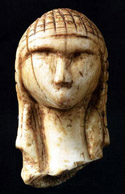Anthropology, Department of

Department of Anthropology: Faculty Publications
Document Type
Article
Date of this Version
Summer 8-2015
Citation
Hames, Raymond. "Kin selection." The Handbook of Evolutionary Psychology (2015), David Buss, ed., pp. 505-523.
Abstract
When Hamilton (1964) published his theory of inclusive fitness it had no immediate impact in the social and behavioral sciences, even though ethnographers knew kinship to be a universally fundamental factor in human social organization, especially in egalitarian societies in which humans have spent nearly all their evolutionary history. In many ways, it was a theory that perhaps anthropologists should have devised: Anthropologists knew kinship fundamentally structured cooperation, identity, coalition formation, resource exchange, marriage, and group membership in traditional societies. It was not until 1974 with the publication of Wilson’s Sociobiology (1975) and especially Richard Alexander’s The Evolution of Social Behavior (1974) that evolutionary social scientists began to take note of the potential of kin selection as a powerful theory that could revolutionize the study of human social behavior. Alexander was the first to comprehensively demonstrate that ethnographic and psychological evidence provided strong support that hypotheses drawn from kin selection would be a productive area of investigation. His review of the anthropological literature on kinship, especially of the Human Relations Area Files (HRAF), was elaborated more fully in Darwinism and Human Affairs (1979). For example, Alexander’s prediction that paternity uncertainty would skew nepotism matrilaterally (1974, pp. 373–374; 1979, p. 169) is now well documented. In addition, he provided important preliminary evidence that suggested that kin selection would help us understand food transfers and cooperative economic activities (Alexander, 1979, pp. 144–161), and that kin selection and reciprocal altruism would be closely linked (1979, pp. 52–58).
Included in
Archaeological Anthropology Commons, Biological Psychology Commons, Social and Cultural Anthropology Commons, Social Psychology Commons


Comments
Copyright © 2015 John Wiley & Sons, Inc. Used by permission.